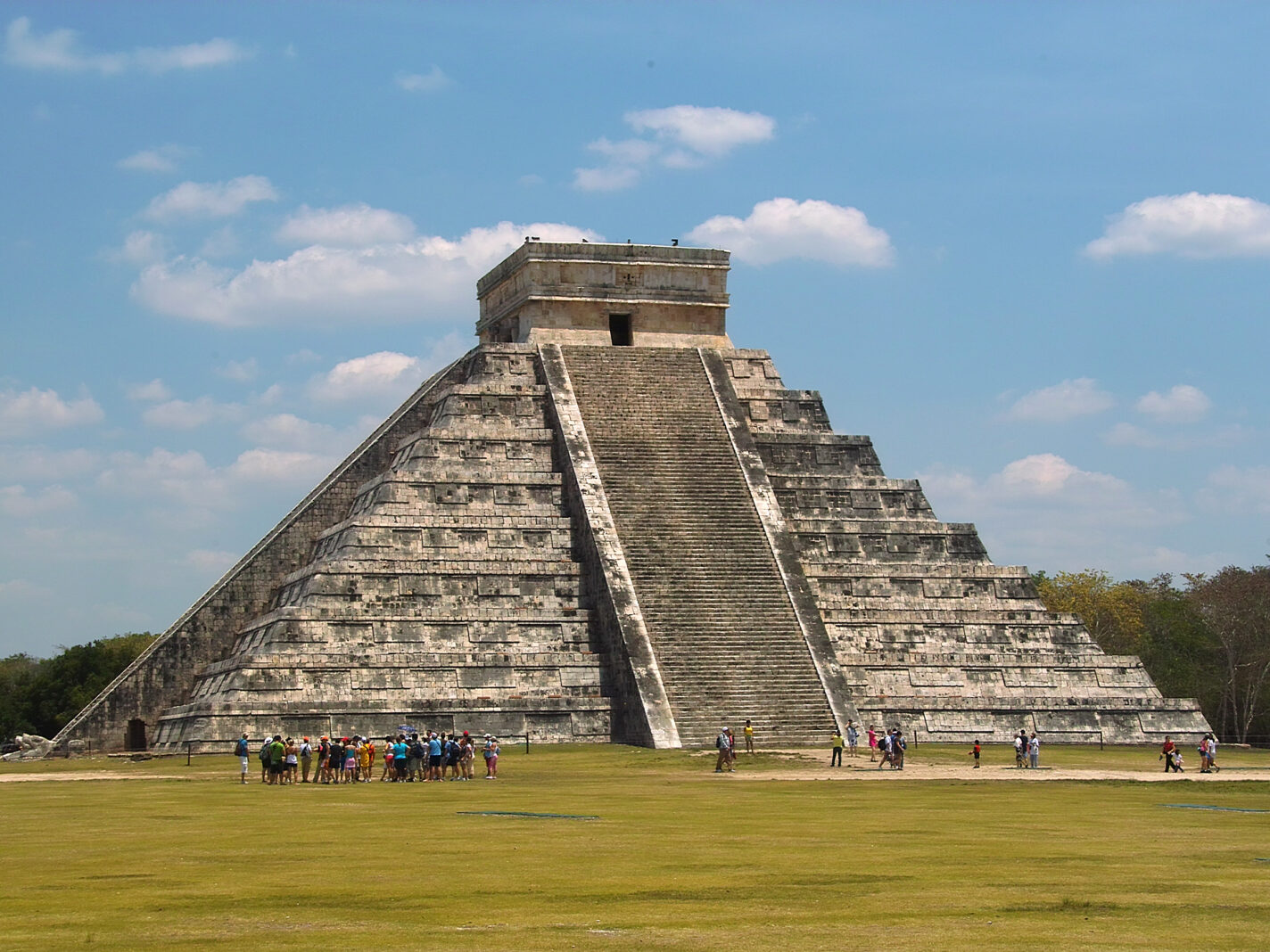Since earlier this week, Indigenous Mayan vendors who sell handmade goods near Chichén Itzá have been standing against what they considered discrimination by the guards who work at the Mayan ruins, mistreatment of their people, and the alleged corruption surrounding access to the temple.
Chichén Itzá is a United Nations World Heritage site located on Mexico’s Yucatán Peninsula. Each year, approximately 2.5 million people visit the archaeological site, worrying locals about the longevity of these ancestral temples.
And according to the Associated Press, the merchants have been blocking access to the roads leading to Chichén Itzá for three days. The protests came after they accused guards of violating their rights as descendants of the Mayans who built the temples more than 12 centuries ago.
“They prohibit the vendors there from speaking Maya,” activist Arturo Ciau Puc told the AP. “Just because we are Indigenous doesn’t mean we should be treated like second-class citizens.”
The AP reports that protesters carried signs that read “No More Harassment of Artisans” and demanded more access to the ruins, so they could sell their goods. According to the AP, Chichén Itzá is operated by the country’s National Institute of Anthropology and History.
On Wednesday (January 4), institute director Diego Prieto described the vendors as “invasive” and said they wanted “to sell Chinese merchandise in front of the pyramid [of Kukulkan],” which is also known as El Castillo (The Castle).
Ciau Puc said that the vendors were also upset that foreign tourists are not being stopped when they attempt to climb some of the structures on the site with some being given “VIP treatment.” Last November, an alleged tourist climbed up El Castillo and began to dance at the top before walking back down. Once back on the ground, she was attacked by other visitors who found her actions disrespectful.
“In the end, it is thanks to us, or our ancestors, that these archaeological zones exist at all,” Ciau Puc said about the mistreatment of the Indigenous Mayan people at Chichén Itzá.
